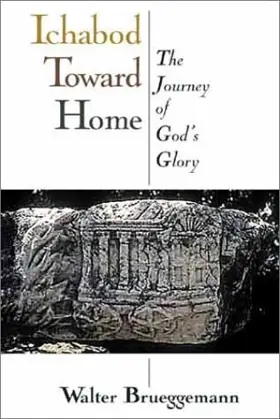

Ichabod Toward Home: The Journey of Gods Glory
Pages
159
Publisher
Eerdmans
Published
1/1/2002
ISBN-13
9780802839305
Reviews
Jesuit School of Theology at Berkeley, of the Graduate Theological Union Berkeley, CA 94709-1193 Ichabod Toward Home began as the Stone Lectures delivered by Walter Brueggemann at Princeton Theological Seminary in 2001. Brueggemann takes up the ark narrative in 1 Sam 4�6, a story in wh ich the ark of God is captured by the Philistines, poses a dangerous threat to its new owners, and is then finally returned to Israel. With keen literary sensitivity, Brueggemann traces the dramatic movement of the narrative as it stretches across what he reads as a three-day scenario. In his exposition, the first day is sketched as a calamitous unfolding both for Israel and for God. The capture of the ark yields defeat for the people and humiliation for their God. Day two reveals a hidden combat taking place between deities at the shrine in Ashdod, creating unprecedented grounds for hope. Night is about to become day, and exile is about to become homecoming. Day three reverses the course of the story. As the finale, it materializes as a miraculous momentous release and liberation for the ark, for Israel, and for their God. Brueggemann however, is interested in much more than the dense literary mapping of the story line he produces here.
[Full Review]
In Ichabod Toward Home Walter Brueggemann presents a reading of one of the oddernarratives in the books of Samuel, the account of the movement of the ark from itscapture by the Philistines through to its return to Israel (1 Sam 4:1b–7:1) and to itsultimate placement in Jerusalem by David (2 Sam 6). In what is perhaps a characteristicmove (given his penchant for examining passages that provide a degree of discomfort forWestern readers), Brueggemann deliberately chooses this text precisely because it is socurious, especially because of the way in which it presents images of Yahweh afflictingthe Philistines with tumors and hemorrhoids while successively defeating both Israel andthe Philistines. The reason for this choice lies in their origin as the Stone Lectures atPrinceton in 2001. Bernhard Anderson had suggested that for the Stone Lectures oneneeded “a very large theme,” and the large theme chosen by Brueggemann was toexamine what it was that the church did when it stood before the text of the OldTestament. It is precisely because the story of the ark is so odd that it provides a usefulvehicle for Brueggemann’s explorations. As such, it is more of an exercise in OldTestament hermeneutics than exegesis per se, though readers aware of critical discussionof the so-called Ark Narrative will see ample evidence of the considerable exegeticalbasis from which Brueggemann works.
[Full Review]
